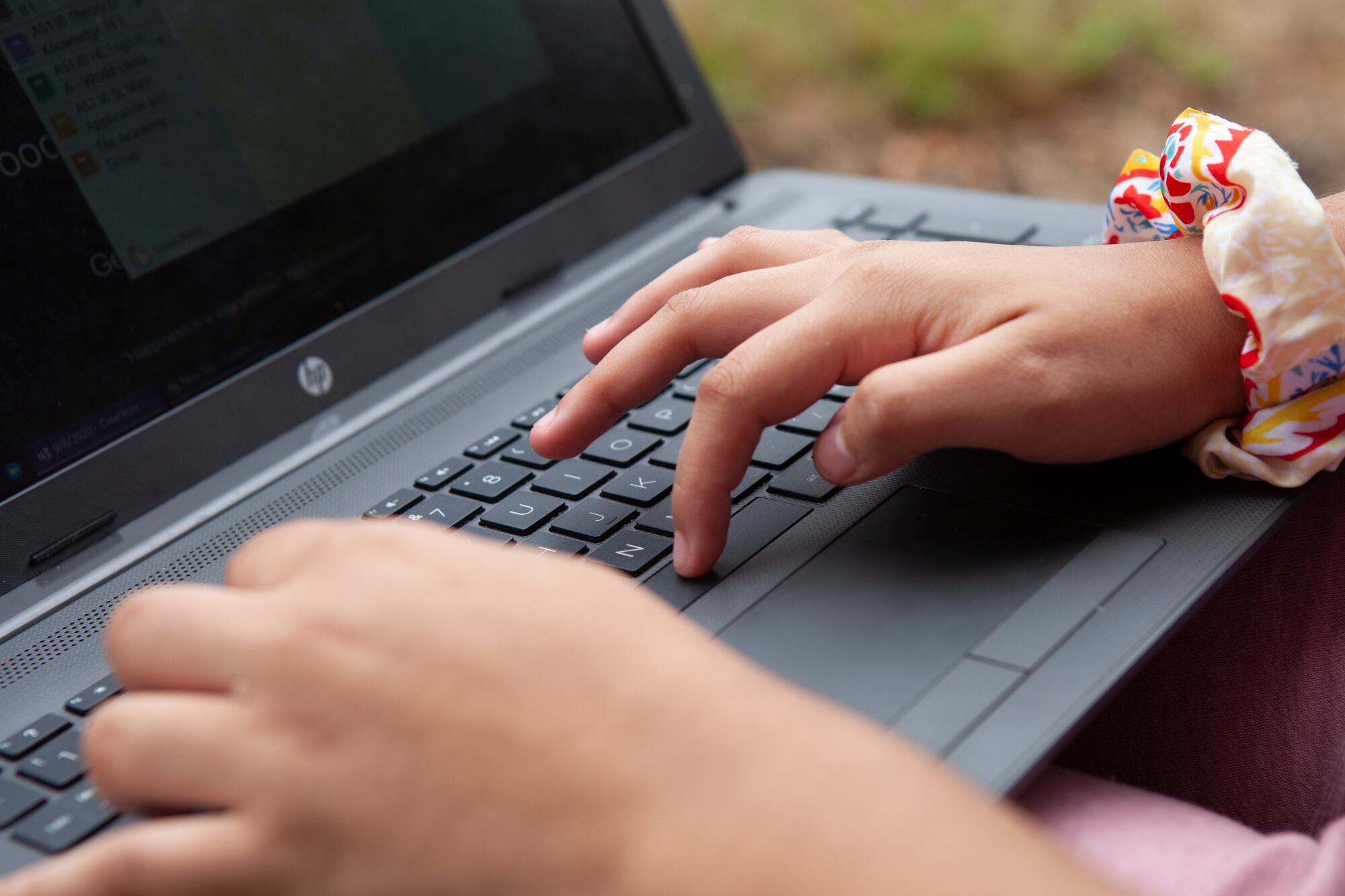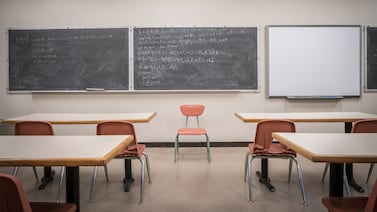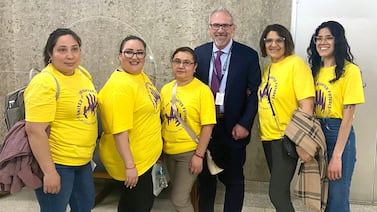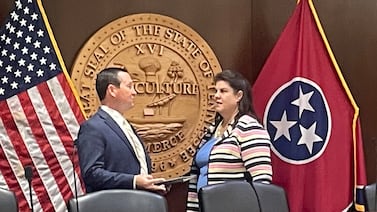Royal Hues couldn’t bear it anymore.
The sophomore at Kensington Creative and Performing Arts High School and her friends decided to sound the alarm over the high amount of screen time during remote learning. Students start the school day at 8 a.m. and end at 3:04 p.m., spending nearly six hours a day in front of screens even with small breaks and lunch.
“It’s hard for me to keep up,” Hues said. “I’m stressing a lot and it has this effect where my eyes hurt and get watery.”
The students started an online petition two weeks ago, demanding an alternate schedule, which would reduce class times to 50 minutes instead of 90 minutes. They argue the long hours in front of the screens are excessive and unhealthy. So far, more than 400 students have signed.
The proposed schedule would start at 9 a.m. and end at 2:25 p.m. with a longer lunch and homeroom and five-minute breaks between each class. They would like no screens on Fridays.
Angelica Speech, a sophomore at Kensington CAPA, said the idea to create the petition came after addressing the matter with a teacher.
“It [the petition] started with a simple conversation with how everyone is stressed over the schedule and teachers being like, ‘Yeah it’s a lot,’” Speech said. “We created a group chat on Instagram, and people in the group chat were like, ‘Let’s present this to our town hall on Thursdays.’ So we came in and other students were like, Yeah, this schedule sucks.’”
The students said they reached out to their principal about changing the schedule, but were told the process was not that easy. It’s unclear who has the power or if there is a process to amend each district school’s schedule. Kensington CAPA Principal Patricia McDermott-Fair did not return phone or email requests on the matter.
The students said they are considering a one day strike of not logging into class if their concerns are not addressed by school and district officials.
Earlier this school year, district officials reduced screen time for kindergarten students. Nyshawana Francis-Thompson, the district’s executive director for the office of curriculum and instruction said during a discussion in October, “I’m not sure where we are at the district in terms of expanding [the reduction] beyond kindergarten.”
“The other piece is trying to ensure our students have an adequate level of support, balancing screen time vs. non screen time is really something that we’re considering, but we don’t want to reduce supports to students,” Francis-Thompson said. “It is something we are constantly thinking about but I can’t say what is happening right now.”
Kensington CAPA history teacher Ismael Jimenez said he and other teachers have been discussing the concern about screen time and schedules with the students since September.
“I want to say these guys [students] did this on their own,” Jimenez said. “Some think the students are getting help putting this together, that’s not the case. These are honor roll students who are doing the work.”
Kensington’s current school schedule exceeds what many educators and health experts suggest for students. And students say the screen time doesn’t end with the school day.
“After 3:04 the work really doesn’t stop there,” said Dena Stileslawson, a sophomore at Kensington CAPA. “There’s homework and studying. It’s difficult when students have outside responsibilities like taking care of their children and siblings.”
Screen time is defined as activities done in front of a screen, such as watching television and using computers. Education and medical experts say that too much screen time can cause poor sleeping habits, anxiety, and obesity.
Tamara Anderson, a local educator with the Racial Justice Organizing Committee and Melanated Educators said students shouldn’t be on screens more than two hours a day.
“This should also include at least 15 minutes of physical activity for each hour,” Anderson said. “None of that is happening as schools continue to be online.”
In a report for PennMedicine, Dr. Bert Mandelbaum, chair of the department of pediatrics at Penn Medicine Princeton Health said “screens are no longer simple devices, but often mobile computers and parents now have to manage not just the quantity of time, but the content.”
Hues, one of the students at Kensington, thinks it’s possible to balance screen time and instruction during remote learning.
“I understand that school needs to continue,” Hues said. “But they need to make it a way in which school is manageable and possible for everyone without it hurting anyone.”








